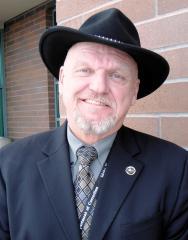
The head of the state’s prison system is skeptical of a bill that would make Idaho high schools off-limits to convicted criminals.
But the sponsor, Twin Falls Republican Sen. Lee Heider, has 27 grandchildren in Magic Valley schools — he says he wants these schools to be kept as safe as possible.
With little discussion and no objection, the Senate Education Committee introduced Heider’s Senate Bill 1056 Tuesday. That means the bill could come back to the committee for a full hearing.
Heider’s case centers on an incident in a Magic Valley high school. Heider won’t identify the school, but in committee, he offered a detailed account. He said two convicted felons enrolled in the school, started gangs, began trafficking drugs and impregnated two girls.
“I think we have a scenario that may be played out in all schools in Idaho, or at least has the potential to be,” Heider said.
His bill would deny school enrollment to anyone who has been convicted of a violent misdemeanor or felony, resulting in at least a one-year sentence. The lone exception: Students would be allowed into school if their case has been closed for at least five years.
Heider said parents brought the Magic Valley case to his attention last winter, but too late for him to present a bill during the 2012 session. He said he worked on the bill last summer with former Sen. Denton Darrington, a Declo Republican who retired last year after 30 years in the Legislature.
Nonetheless, the bill caught corrections agencies off-guard.

Correction Department Director Brent Reinke said he knew nothing about the bill until Wednesday afternoon, when Idaho Education News showed him the wording. After reading the bill over, he voiced reservations.
“It’s something I’m concerned about, because school dropout (rates are) a significant risk factor,” he said.
Idaho hasn’t done its own research, Reinke said, but the numbers in other states are stark: Between 40 and 45 percent of dropouts wind up in the correction system.
In an interview Wednesday morning, Heider said he hadn’t discussed the bill with Correction officials. “The view of the correctional institution is really the least of our concern,” he said.
Juvenile offenders are rarely sent to adult prisons, so Heider’s bill would have little direct effect on Reinke’s department. That’s not the case with the state’s Department of Juvenile Corrections — which found out about the bill through a media report from Tuesday’s committee meeting.
Juvenile Corrections has no position on the bill, spokesman Monty Prow said. “We’re still reviewing it.”
However, the bill would inevitably affect Juvenile Corrections’ operations.
On Wednesday, Juvenile Corrections had 318 convicted offenders in custody. The average sentence is 18.1 months — well beyond the one-year threshold established in Heider’s bill.
Offenders in Juvenile Corrections centers attend class at least 5 hours a day, year-round — and about a fifth of the department’s $36.7 million budget goes into education, Prow said. Some juvenile offenders leave with a diploma or a GED; others work on course credits, and, upon release, go back to their old school.
Heider says juvenile offenders do not need to return to public high school as hardened criminal “predators,” and can get their GED or learn a trade elsewhere. “I’m not suggesting we throw them to the wolves.”
